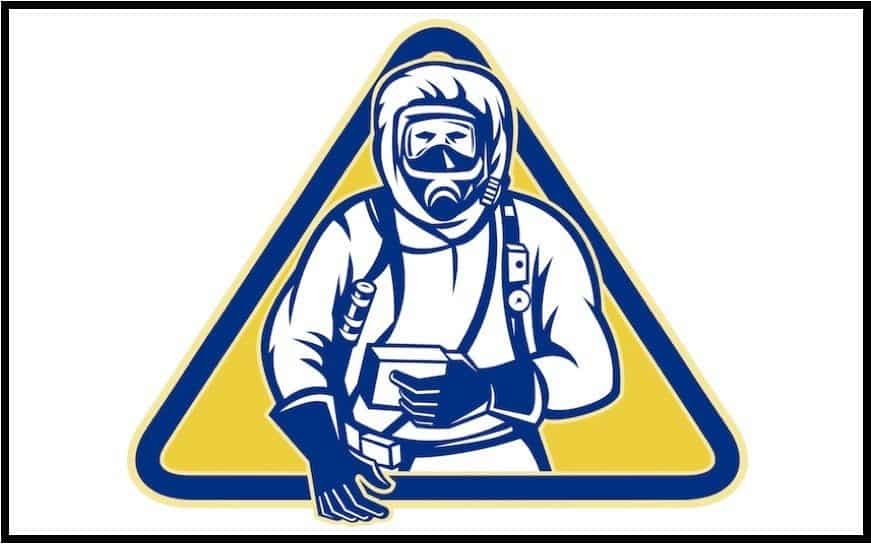Veterans Exposed to Agent Orange at US Bases Denied VA Compensation
As a young soldier stationed at Fort Ord in Monterey County, California, Dean Osborn spent most of his time training in the coastal woodlands. Unbeknownst to him, the soil and water he was exposed to contained cancer-causing chemicals. From 1979 to 1980, Osborn and other soldiers drank from streams and aquifers contaminated with pollutants, including the notorious Agent Orange.
Fort Ord, a 28,000-acre installation closed in 1994, has a long history of herbicide use, particularly for eradicating poison oak. However, recent evidence suggests that the military experimented with and sprayed Agent Orange on the base for decades, exposing countless soldiers to its toxic effects.
A Legacy of Contamination
Agent Orange is known for its widespread use in defoliating Vietnam’s jungles, but its impact reached the shores of the United States as well. The Department of Defense has acknowledged storing and testing the herbicide at various military bases across the U.S. Despite this, Fort Ord has not been officially recognized by the VA as a contaminated site. This omission leaves veterans like Osborn unable to receive compensation for illnesses linked to their exposure.
Research and reports dating back to the 1950s suggest that Agent Orange was used at Fort Ord to combat poison oak. Article published in the journal The Military Engineer highlights the herbicide’s effective use in reducing skin conditions like dermatitis among soldiers.
Understanding Agent Orange’s Chemical Dangers
Agent Orange is a 50-50 mixture of 2,4-D and 2,4,5-T. The latter contains dioxin (TCDD), a highly carcinogenic compound associated with multiple cancers, chronic diseases, and birth defects. The Environmental Protection Agency banned the use of 2,4,5-T in 1979, recognizing its danger to public health. Despite this, 2,4-D remains in commercial use today.
According to the VA, those who served in Vietnam between 1962 and 1975 are eligible for disability compensation due to presumed exposure to Agent Orange. However, soldiers like Osborn, who never served in Vietnam but spent time at other bases using Agent Orange, face denials and obstacles in seeking compensation.
Mounting Evidence of Negligence
Environmental activist Pat Elder and his team of experts have uncovered multiple documents proving the presence and use of Agent Orange at Fort Ord. Their research shows that herbicides containing both 2,4-D and 2,4,5-T were applied to kill poison oak in the training areas. The team also discovered a 1991 hazardous waste minimization report listing annual herbicide usage at Fort Ord as 80,000 pounds.
Despite this mounting evidence, the VA remains hesitant to recognize Fort Ord as a presumptive exposure site, citing a lack of documentation from the Department of Defense. However, researchers like Kenneth Olson, a professor emeritus of soil science, argue that evidence of contamination with TCDD at the base is compelling.
Health Impacts and Frustrated Veterans
Veterans who served at Fort Ord report significant health challenges, with many developing cancers and chronic illnesses attributed to Agent Orange exposure. Osborn is among those affected, suffering from prostate cancer, hypothyroidism, and other conditions.
Julie Akey, a former Army linguist stationed at Fort Ord in the 1990s, tracks the cases of over 1,400 veterans diagnosed with cancers and illnesses after their time on the base. She runs a support group where veterans share their stories and advocate for recognition from the VA.
Agency Inaction and Public Outcry
The VA recently proposed a rule to extend Agent Orange benefits to veterans at 17 domestic bases. Yet, Fort Ord remains excluded, leaving many veterans ineligible for compensation. Frustrated by this oversight, veterans and their families have flooded the VA with public comments urging the inclusion of Fort Ord.
The Agency for Toxic Substances and Disease Registry (ATSDR) is currently studying chemical exposures among those who lived and worked at Fort Ord from 1985 to 1994. However, the ATSDR’s focus is limited to contaminants like trichloroethylene and does not address Agent Orange specifically.
The struggle for compensation and recognition continues for veterans exposed to Agent Orange at Fort Ord. Despite the overwhelming evidence and growing public outcry, the VA remains reluctant to expand the list of recognized exposure sites. This controversy underscores the need for greater accountability and support for veterans who served their country, only to find themselves abandoned in their time of need.
Frequently Asked Questions (FAQs)
What is Agent Orange?
Agent Orange is a powerful herbicide containing two chemicals, 2,4-D and 2,4,5-T, used by the U.S. military to clear vegetation during the Vietnam War. It contains dioxin, a potent carcinogen.
Why are veterans denied compensation for Agent Orange exposure at Fort Ord?
The VA denies benefits due to a lack of evidence that Agent Orange was used or stored at Fort Ord, relying on outdated Defense Department lists.
What illnesses are linked to Agent Orange exposure?
Agent Orange exposure is linked to cancers, chronic conditions, birth defects, and neurological damage similar to Alzheimer’s disease.
Are other military bases suspected of Agent Orange contamination?
Yes, besides Fort Ord, several other bases are suspected of having been exposed to Agent Orange. These include locations in Mississippi, Texas, Florida, and dozens of other bases where documentation is incomplete or unavailable.
How can affected veterans pursue compensation for Agent Orange-related illnesses?
Veterans can submit claims to the VA with medical records and evidence of their exposure. Working with veterans’ organizations and legal counsel can help navigate the complex claims process, while public advocacy continues to push for broader recognition of exposure.





This should be criminal. Agent Orange was more widely used on military bases than the VA will admit. It was also reportedly used on Treasure Island California. Treasure Island is more known for the radioactive materials that were buried there and the conspiracy to cover it up.
The Pact Act is joke.
Whelp, maybe if they make Trump tax cuts permanent, VHA will eventually become even more of a theatre performance and grocery store with nothing on the shelves. Already nothing but a bunch of snake oil salesmen in there and out in the free market you got confidence men trying to squeeze every penny ever minted out of anyone’s ass they lay eyes on so… yeah, get benefits and move to somewhere like Thailand where healthcare is affordable and easily accessible. Sure the quality won’t be as good as the free market in the USA but it’s better than nothing at VHA and having to sell your house if you need to get it on the free market. That’s why I save 50% of my 90% compensation benefits every month just in case I need something serious done.
Thanks for your information on agent orange. Is there an available list of military bases in the USA where agent orange use is suspected?
AGE DISCRIMINATION of our elder Veterans is alive and well within the Democrat Party
My uncle died a few years ago from cancer brought about by exposure to agent orange in Vietnam. He was 70 something. Had a pretty good life aside from that. The war claimed another one decades later. I don’t think he was involved with VA or any of that other bullshit. Got out of service and learned his lesson about our phoney systems and bogus politics… although he did work for the Texas government for a while. Their names belong on that Vietnam wall as well but of course nobody has a say in a fuckin thing anymore and it’s still hard to get the government to do a fuckin thing. VHA still randomly provides healthcare… criminally malfeasant and politicized system that will never work. Insurance cards work!!!
The VA does not award Ft. Mcclellan veterans for exposure and a patient review has been with
The ATSDR for 18 months with no response
If VHA is America’s experiment with social democracy then it has failed here..why? Because in general that’s not the prevailing political orientation here in the USA. Too many people aren’t committed to that so you can expect bad results well into the future. Only takes a small handful of people to throw a wrench into the machine and fuck the whole thing up. When people stop accepting that as democracy then that system will be able to function properly. Until then it will be a threat to people’s well-being.